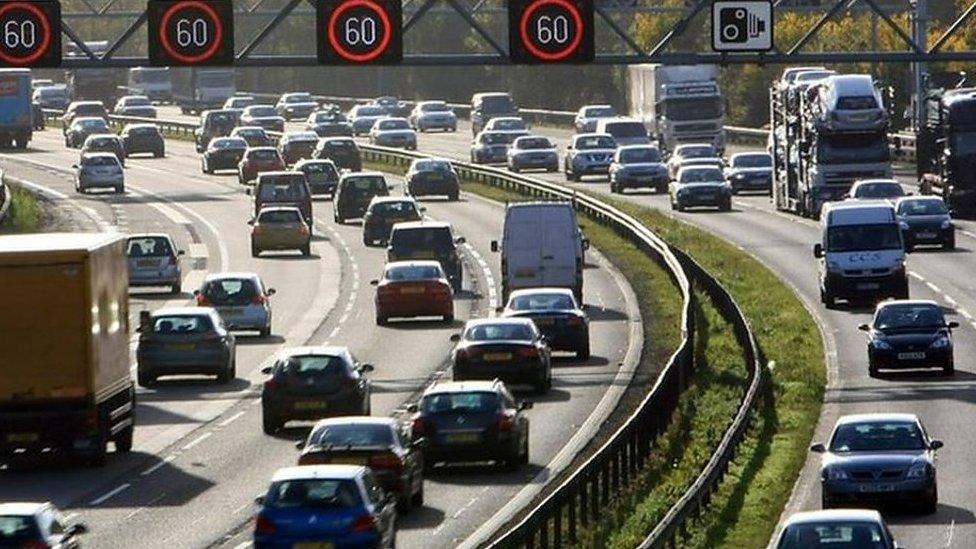Polluting M4 and A470 drivers in Wales could face payments
- Published
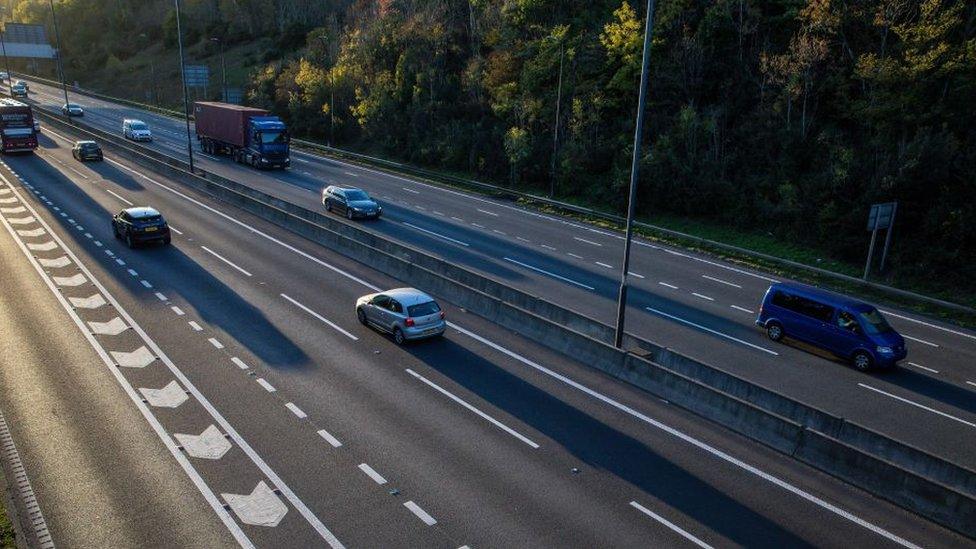
The M4 through Newport could be one of the roads where charges are imposed
Drivers of heavily polluting vehicles could have to pay on some of Wales' busiest roads under a new law.
The Welsh government said it would only happen if 50mph zones fail to reduce emissions.
Sections of the M4 near Newport and the A470 at Pontypridd have been considered as potential clean air zones if lower speed limits do not work.
The Welsh Conservatives said it was the last thing people struggling with the rising cost of living needed to hear.
The charging powers are contained in a long-awaited law on air pollution.
Entitled the Environment (Air Quality and Soundscapes) Bill, it paves the way towards new national targets on cutting pollution.
The legislation was welcomed by Plaid Cymru, who said it was long overdue.
Other plans include steeper fines for drivers who leave their car engines idling, especially when parked outside schools.
Councils will get new powers to enforce smoke control areas, where there are restrictions on what fuels can be burned.
To tackle noise pollution, ministers will have to produce a strategy that would also protect natural sounds, such as birdsong.
But the government is not proposing to ban wood-burning stoves in the legislation.
At present, the Welsh government can only introduce clean air charges on roads in limited circumstances, for example where there are bridges or tunnels of at least 600m.
Nitrogen dioxide
That would change under the new law, with ministers able to create low emission zones anywhere on the trunk road network, which includes the M4.
Speed limits of 50mph have been introduced on five sections of motorway and A-roads to reduce the amount of nitrogen dioxide released from vehicle exhausts.
They include the M4 between junctions 25 and 26 and the Upper Boat to Pontypridd stretch of the A470 in Rhondda Cynon Taf.
Government documents say clean air zones will only be considered in those two locations "should the reduced speed limits fail to ensure sustained, long-term compliance".
The law, which will need to be passed by the Senedd, would not apply in towns and cities, where local authorities are in charge of the roads.
But the government said it would also let councils introduce their own emissions charges, as has happened in some English cities.

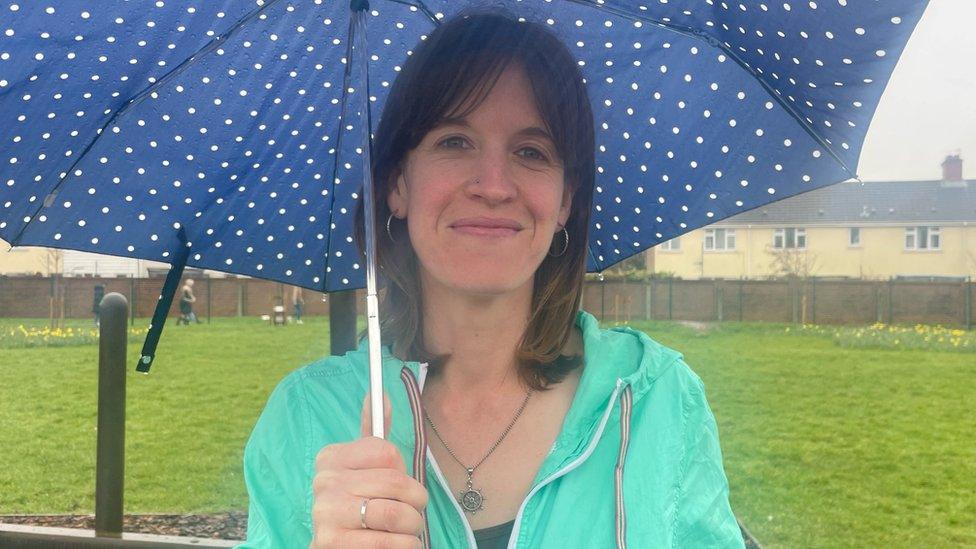
Deb Loganathan thinks road charging could be a good idea
Parents at the school gates of Maesglas Primary School in Newport had mixed feelings about the possibility of a charge.
Deb Loganathan, who walks her daughter to and from school, said it could be a good idea.
Increased cost of living
"We've got to prioritise the environment, I don't drive myself, so that makes me slightly biased. But anything that will increase the reason for people to get electric vehicles or lower polluting vehicles then yes, definitely," she said.
Katrina Rafferty, who was also picking up her daughter, felt that because of the increasing cost of living there should not be a charge.
"People can't afford to live as it is," she said. "If you want to be able to go to town you shouldn't have to pay really.
"It's just putting more money on top of money that people haven't got."

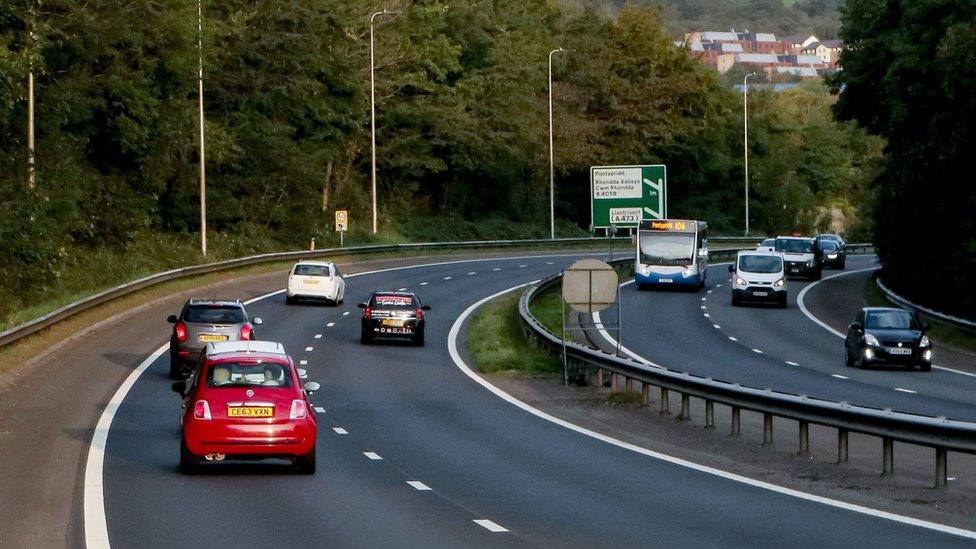
The A470 is one of the two roads that could see charging under the law.
Climate Change Minister Julie James said she expects the 50mph speed limit on the M4 and A470 will work to reduce air pollution.
"I do expect that it will work," she said at a news conference. "But if it doesn't work then we will look to see if we [need to] put control zones in place."
The bill has been welcomed by environmental campaigners.
Joseph Carter, of Asthma and Lung UK, said: "Air pollution is one of the most pressing public health issues we face, and it is especially damaging to our children's developing lungs."
And Friends of the Earth Cymru director Haf Elgar said: "Air pollution is not only a public health issue, but also a social justice issue and an environmental issue."
Meanwhile, Plaid Cymru climate change spokesperson Delyth Jewell called the bill a "step forward".
But she added: "This bill is painfully overdue and there are still questions about its scope and how exactly it'll be enforced."
The Welsh Conservatives are opposed to the road charging elements of the legislation but welcomed other parts of it.
Welsh Conservative Shadow Minister for Transport, Natasha Asghar, said: "The Labour government is all stick and no carrot when it comes to their transport policy."
She added: "People are already struggling with the cost of living and this is the last thing they need right now."

HOW TO FIX A RAILWAY: Wales' transport transformation, from boardroom to platform
TRUCKERS: Life on the road with Wales' HGV drivers

Related topics
- Published14 March 2023
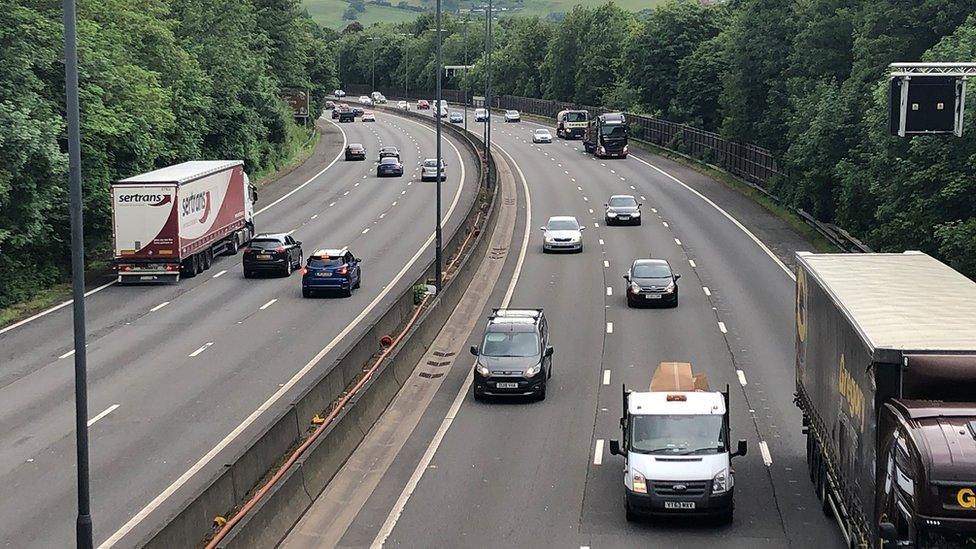
- Published15 February 2023
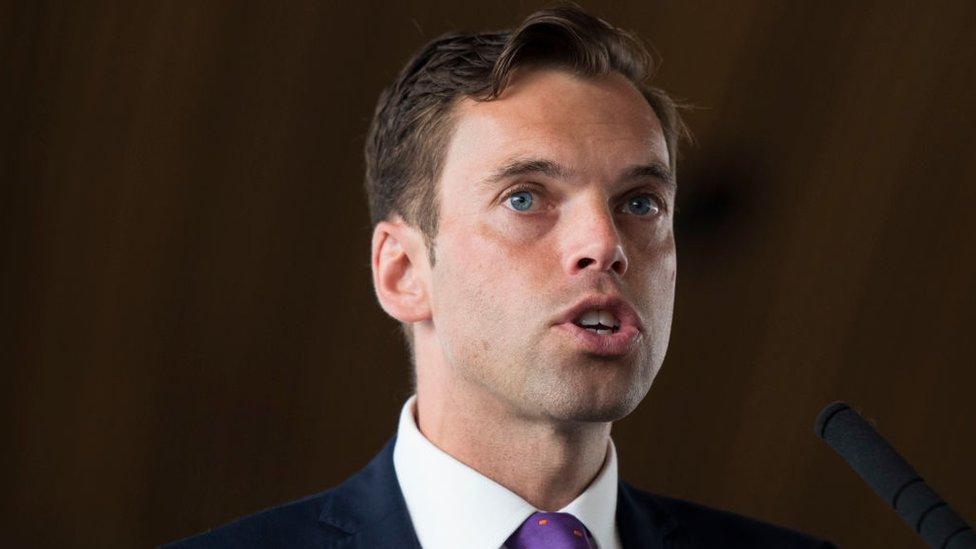
- Published5 June 2019
